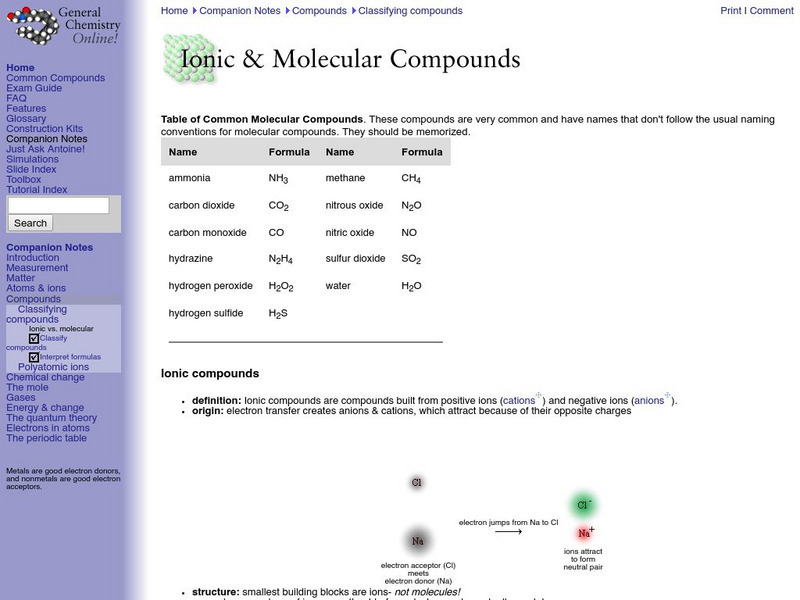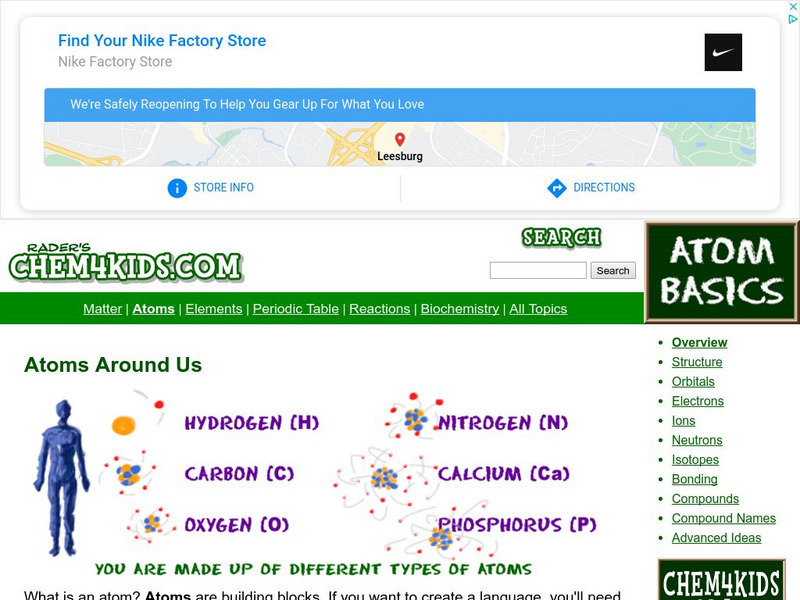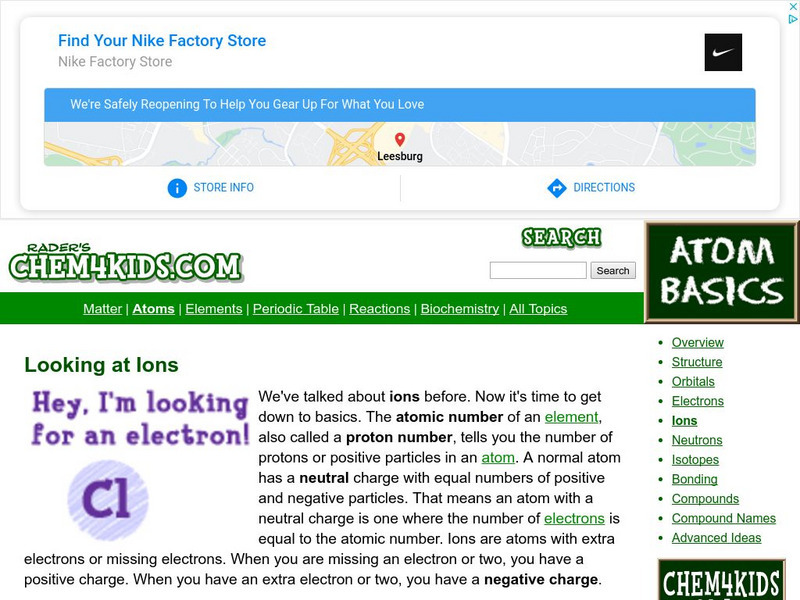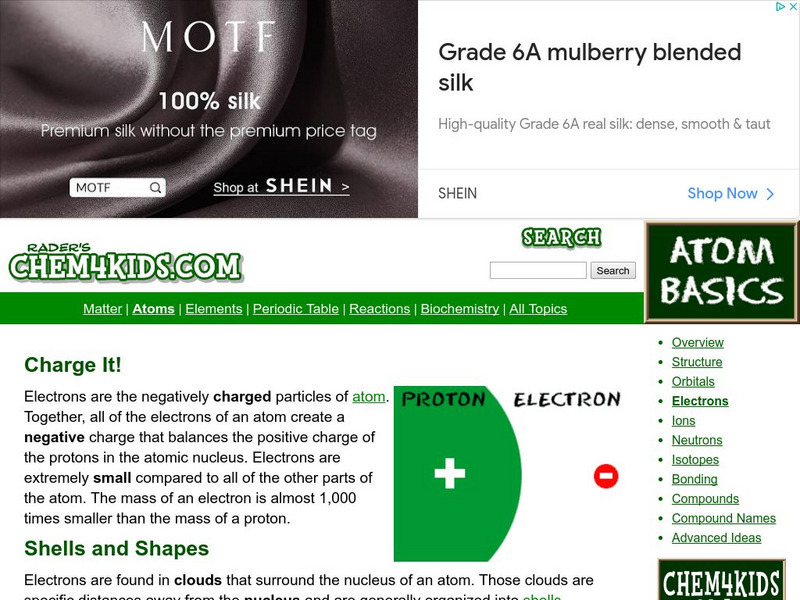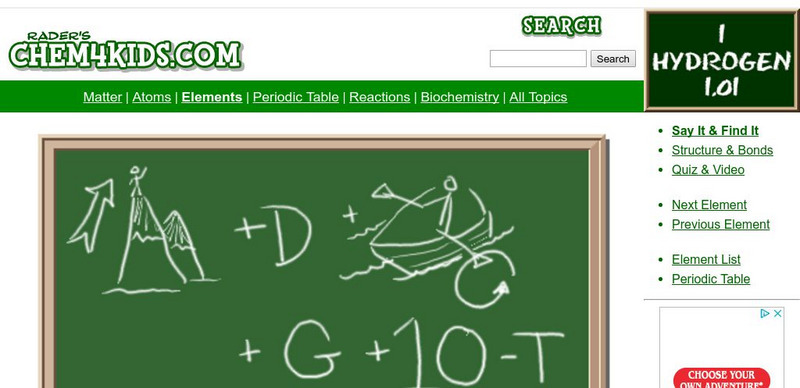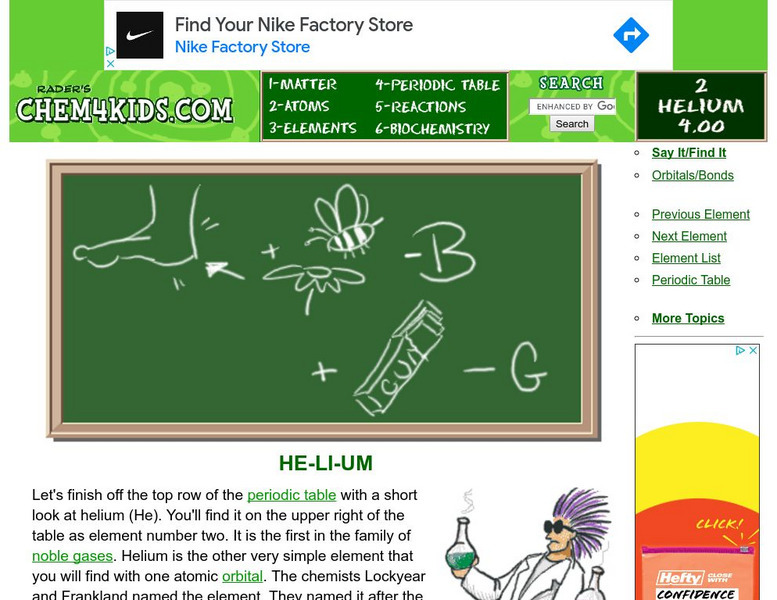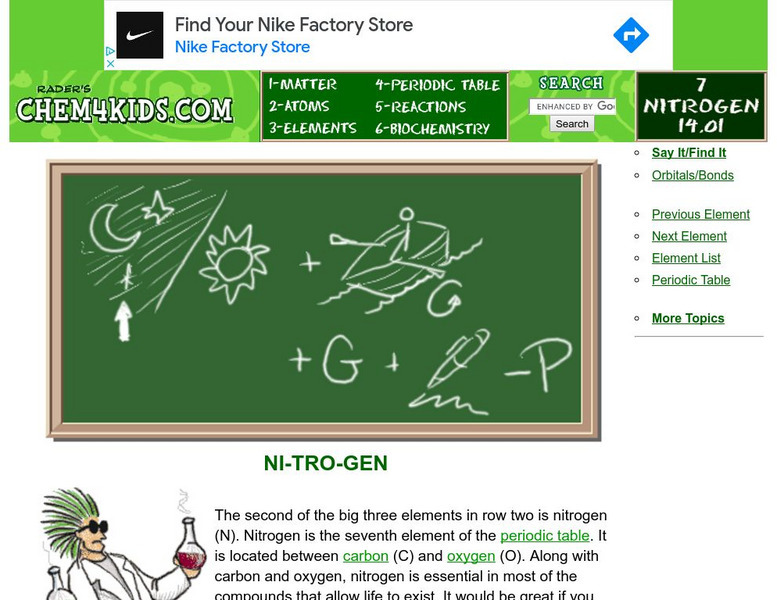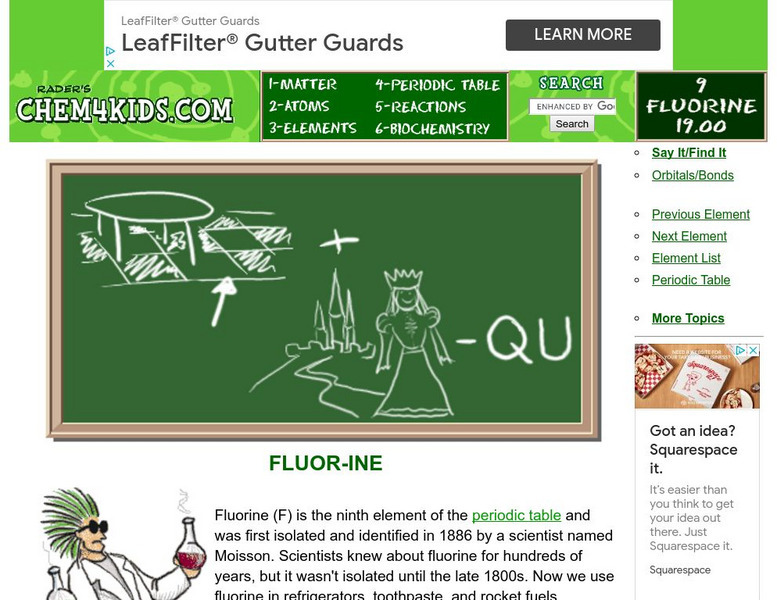National Institute of Open Schooling
Chemical Bonding
Name is Bond, covalent bond. Through readings and answering questions, classes explore the different types of chemical bonds, their characteristics, valence shell electron pair repulsion theory, and atomic orbitals.
American Chemical Society
Development of Baking Powder
Did you know baking powder can be used to treat acne, whiten teeth, and make sugar cookies? The lesson plan on the development of baking powder is ready-to-go with no preparation required. Through readings, pupils answer questions,...
Frostburg State University
General Chemistry Online: Ionic and Molecular Compounds
Provides a good outline of the concepts involved in ionic and covalent bonding, with links to definition of terms. Features a list of common molecular compounds and a chart that compares ionic and molecular compounds.
University of Florida
University of Florida: General Chemistry I: Chemical Bonding
Notes on covalent bonding, bond length, bond energies, Lewis dot structures, and percent ionic character. Colorful graphics.
Chem Tutor
Chem Tutor: Bonds in General
A summary of bonding terms and the importance of electrons in bonding.
Chem Tutor
Chem Tutor: Binary Covalent Compounds
An explanation of bonding in binary covalent compounds. Rules for naming binary covalent compounds using common names and system names are also provided.
Ohio State University
Ohio State University: Electronegativity & Bond Polarity
Excellent graphics help this page explain the relationship between electronegativity and bond polarity.
Oklahoma State University
Oklahoma State University: Bonding Rules of Thumb
Simple rules to help students identify types of chemical bonding.
Other
University of Texas at Dallas: Attractions in Compounds
Explanation of attractive forces and energy changes involved in bonding.
Chem4kids
Chem4 Kids: Atoms
This site provides a detailed overview of atoms. Content explores an atom's structure, as well as what ions are, how atoms bond, what compounds are (including how to name compounds), and what isotopes are.
Science4Fun
Science4 Fun: Chemical Bonding
What is a chemical bond? Learn about the structure of an atom, why bonds are formed, and the different types of chemical bonds.
Chem Tutor
Chem Tutor: Radicals or Polyatomic Ions
This site includes a list of the names, formulas, and charges of some common polyatomic ions.
Chem4kids
Chem4 Kids: Ions
Here at Chem4Kids you can learn all about ions. Content explores what an ion is, its various characteristics, electrovalence, and more.
Chem4kids
Chem4 Kids: Atoms: Electrons
Learn about an electron's negative charge, location, and role in bonding. Website also investigates electrons uses in electricity.
Chem4kids
Chem4 Kids: Lithium
Here at Chem4Kids you can find some great information about the third element in the periodic table, lithium. Content focuses on lithium's electrons, where you can find lithium in nature, and how it bonds with other elements (or with...
PBS
Pbs Learning Media: The Structure of Metal
In this interactive activity from the NOVA Web site, animations explain different aspects of the properties of metal.
Chem4kids
Chem4 Kids: Magnesium (Mg)
Here you can find some great information about the 12th element in the periodic table, "magnesium." Content focuses on magnesium's electrons, where you can find magnesium in nature and in the home, and how magnesium combines with other...
Chem4kids
Chem4 Kids: Hydrogen
Here you can find out about hydrogen, the first element in the periodic table. Content includes shell information, where to find it in nature, and why it is helpful to us.
Chem4kids
Chem4 Kids: Helium
Here you can find lots of great information about helium. Learn about its electrons, where it exists in nature, and about the element itself!
Chem4kids
Chem4 Kids: Carbon
Click on the left navigation terms for some great information about the 6th element in the periodic table, "carbon." Content focuses on carbon's electrons, where you can find carbon in nature and in the home, and how carbon combines with...
Chem4kids
Chem4 Kids: Nitrogen (N)
Here you can find some great information about the 7th element in the periodic table, "nitrogen." Content focuses on nitrogen's electrons, where you can find nitrogen in nature and in the home, and how nitrogen combines with other elements.
Chem4kids
Chem4 Kids: Fluorine
Here you can find some great information about the 9th element in the periodic table, "fluorine." Content focuses on fluorine's electrons, where you can find fluorine in nature and in the home, and how fluorine combines with other elements.
Chem4kids
Chem4 Kids: Neon (Ne)
Here you can find some great information about the 10th element in the periodic table, "neon." Content focuses on neon's electrons, where you can find neon in nature and in the home, and how neon combines with other elements.
Chem4kids
Chem4 Kids: Sodium (Na)
Here at Chem4Kids you can find some great information about the 11th element in the periodic table, "sodium." Content focuses on sodium's electrons, where you can find sodium in nature and in the home, and how sodium combines with other...


